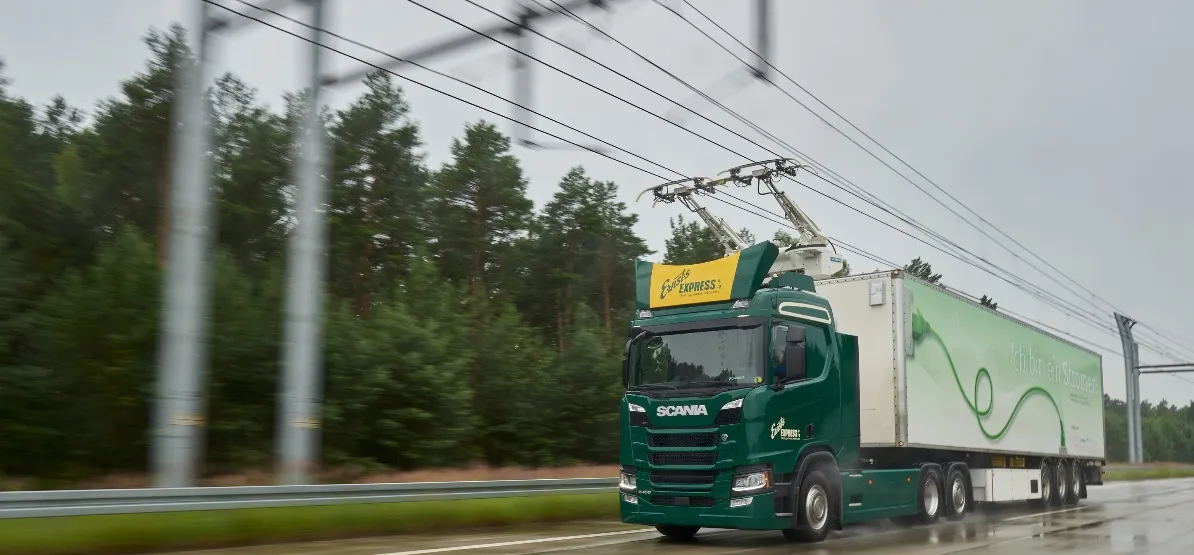Scania and Siemens have entered into a partnership which will integrate Siemens technology to power vehicles with Scania's expertise in the electrification of powertrains in trucks and buses. The companies say the partnership means that Sweden may become the world's first country with electrically powered trucks and electrified roads for commercial use. Both companies have been working on the possibilities for electrically powered vehicles; Scania has explored the possibilities of electrifying the powertrai
March 12, 2013
Read time: 2 mins
Both companies have been working on the possibilities for electrically powered vehicles; Scania has explored the possibilities of electrifying the powertrain in buses and trucks, while Siemens has been working with technology in which vehicles receive power from a wire in the air via a pantograph on the roof. The two companies have now teamed up to develop electrically powered trucks for commercial use.
“Full-scale demonstration of electrified road sections can quickly become a reality through this partnership,” says Henrik Henriksson, executive vice president and head of Scania’s sales and marketing. “Fuel savings made possible by electrification are huge, and this project is a foundation stone for fossil-free road transport.”









